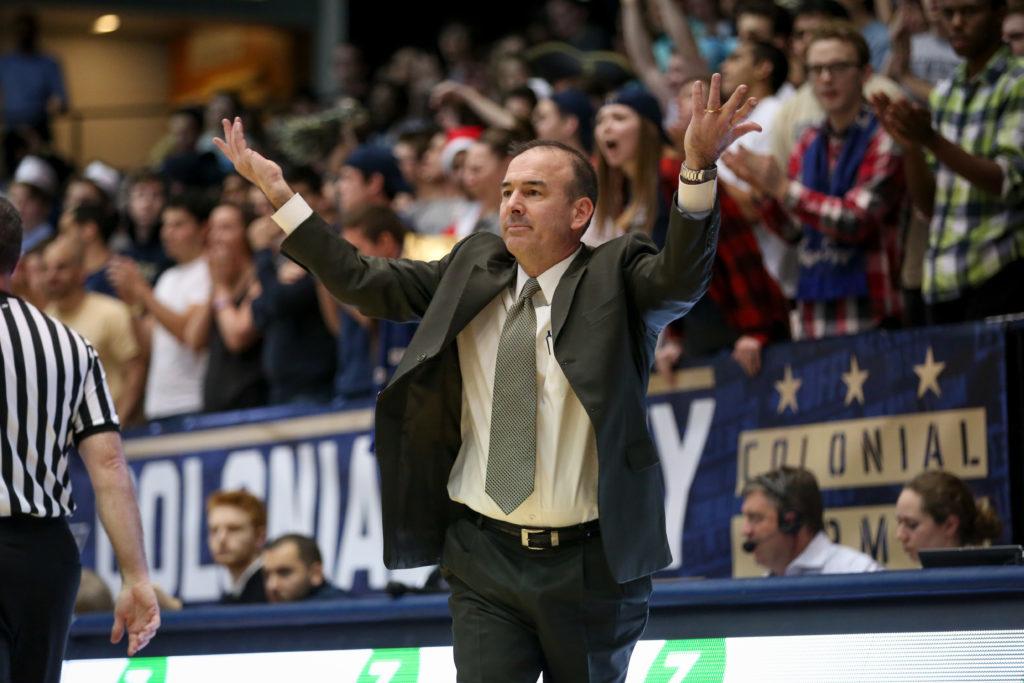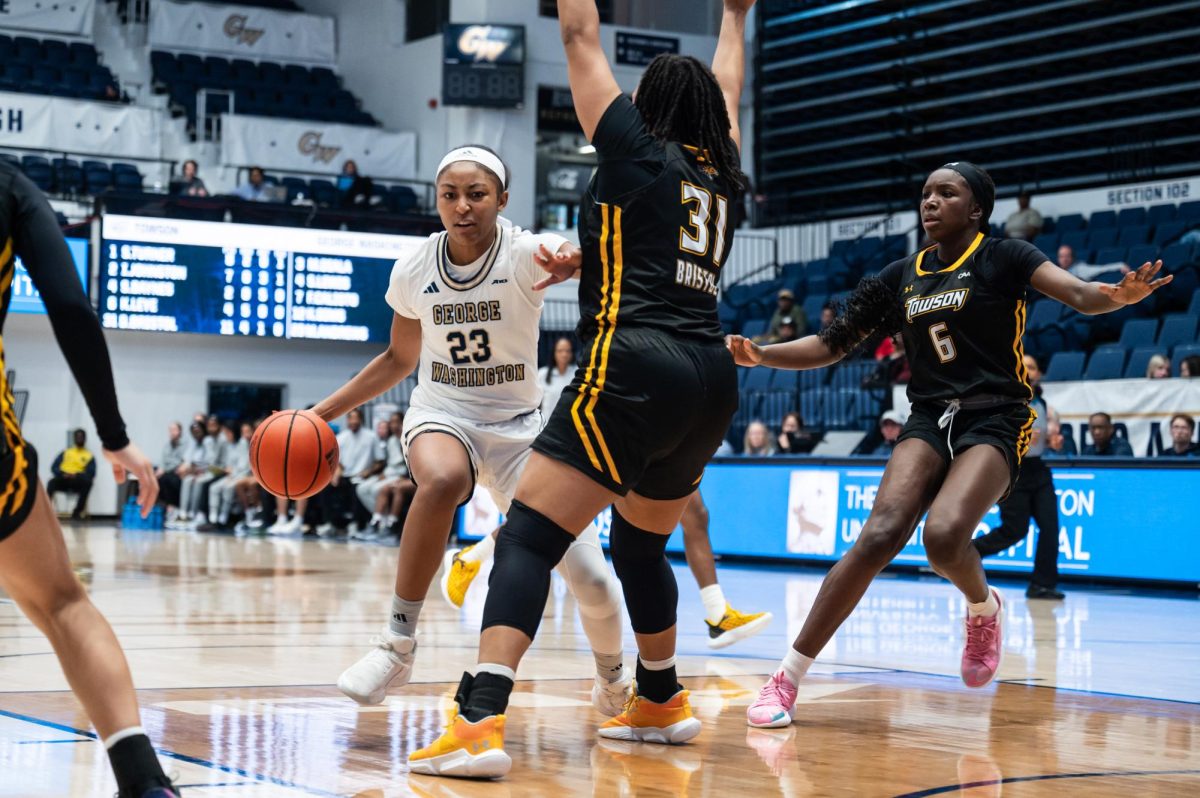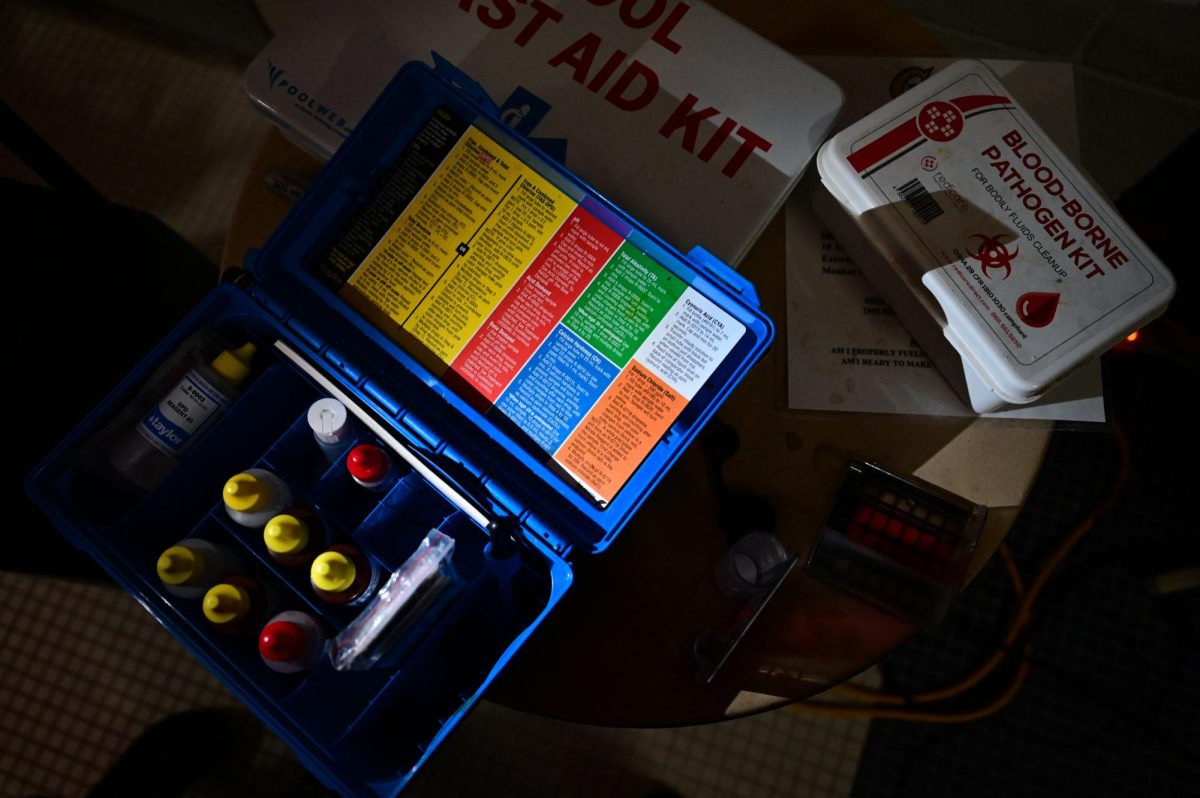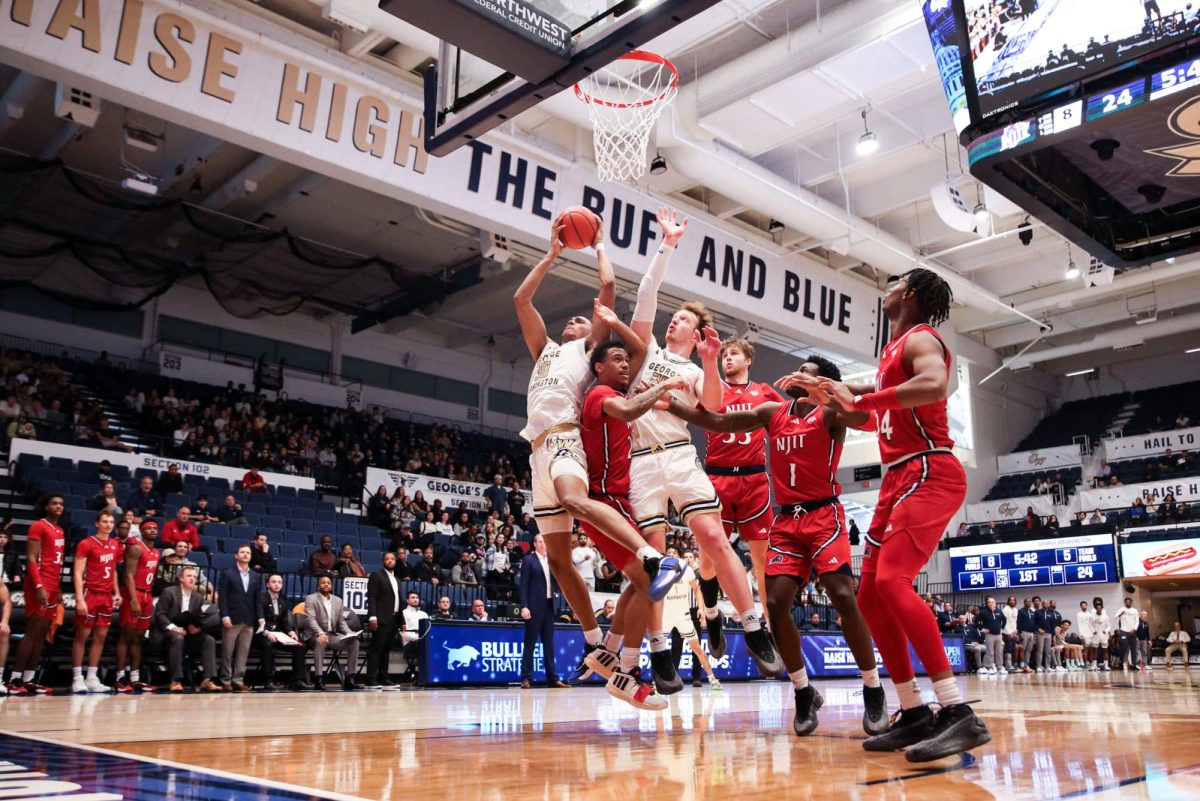Updated: Sept. 18 2017 at 10:19 p.m.
The University’s settlement with former men’s basketball head coach Mike Lonergan allows both sides to avoid a potentially harmful and drawn-out legal process, experts said.
Nearly a year after he was fired following allegations of verbal abuse from players, Lonergan and GW released a joint statement Wednesday announcing they reached an agreement “amicably.” Legal experts said the settlement – the terms of which are confidential – was the best option for both GW and the former coach to avoid an open trial, where student-athletes would need to come forward to testify and the details of the case would be open to public scrutiny.
The Hatchet reached out to the University with a combined 19 questions regarding the factors that led to the settlement, where the payout is coming from and the facts that led to Lonergan’s dismissal. The University declined to comment on each question, citing the confidentiality provision of the settlement.
“It’s not a walk in the park to litigate a case for anybody, for either side,” Jody Shipper, the former chief Title IX administrator at the University of Southern California, said. “They may have been completely right about the termination, and still lose a trial. After spending hundreds of thousands of dollars.”
Although no suit was filed, Lonergan’s attorneys released a statement the day after he was fired last year threatening to “seek appropriate relief.” Lonergan declined to answer questions about the settlement and his termination.
A former GW men’s basketball player under Lonergan, who spoke on the condition of anonymity, alleged that Lonergan’s behavior was “terrorizing” and “demeaning,” but said the coach may have deserved the settlement.
“Just getting flung out with no work, out of nowhere is tough for anybody,” he said. “But you just have to conduct yourself with professionalism. At the end of the day, I don’t know who’s deserving of what. But I do know that he was not abiding by standards of any university.”
Lonergan’s next move
Following the announcement of the settlement, Andy Phillips, an attorney for Lonergan, said in a statement that the former coach “looks forward to resuming his coaching career when the right opportunity presents itself.”
Experts said the language of the statement released publicly last week, which includes recognition of Lonergan’s success at GW winning the NIT in 2016 and his contributions off the court, improves his image and allows for possible future coaching opportunities.
“It doesn’t harm the University to highlight on-court contributions and they most likely would prefer to move on from the bad publicity,” Joshua Gordon, the founder and senior practitioner at the Sports Conflict Institute, said. “The only one really needing to re-establish their reputation is Lonergan, so it seems fair that he’d want a statement to highlight such things in order to try to get another chance.”
Dave Ridpath, a professor of sports administration at Ohio University and an expert on coaching issues, said Lonergan could still get a coaching position elsewhere.
“I do say that coaches can rehabilitate themselves quite quickly, not that that’s right,” Ridpath said. “Often times, if you win a few games you’re getting a lot more room. So, we’ll see, I don’t think it’s completely over for him, but there’s going to be some challenges.”
Terms of the settlement
Lonergan signed a contract extension in 2014 that offered him the position through the 2020-21 season. He had five years remaining on his deal when he was dismissed. He was compensated $797,446 in 2015, according the the University’s tax documents.
Walter Champion, a professor of sports law at the Thurgood Marshall School of Law at Texas Southern University, said Lonergan’s contract was likely similar to other Division I coaching deals and included a liquidated damages clause, determining the amount he would receive after termination. In order to pay less than that, GW would have to prove that he was fired for breaking the terms of his contract or settle out of court.
Some experts said the University likely paid out the rest of his contract – and possibly more – just to avoid litigation. Others, including Ridpath, said they would be surprised if Lonergan is receiving the entirety of what he was originally owed.
“I would make a strong guess that typically if there’s smoke, there’s probably something there,” Ridpath said. “The University wouldn’t have removed him in the first place if they didn’t have something. So, I can’t imagine that he got the ‘full boat,’ but he probably got a decent severance by most normal person standards.”
Impact on Title IX
The allegations of verbal and emotional abuse were first made public in an article published in the Washington Post last year. The story cited at least five current and former players who each anonymously alleged inappropriate comments from Lonergan to The Post. Following the report, the University brought in outside counsel and launched an investigation into the claims.
Previously in 2015, the University conducted a review of Lonergan’s conduct but did not identify any violations.
Helen Grant, an athletic department consultant and Title IX expert with The Grant Group, said the joint statement may not sit well with the players who spoke up last year and their parents.
“Just that statement alone, for those who felt really offended, the players in particular, the player’s parents, the ones that transferred, just to hear them say that they settled it amicably and still felt that the coach had contributed a lot to the institution,” she said. “That certainly makes some people upset.”
In August, the Department of Education’s Office for Civil Rights opened an investigation into GW for possible violations of federal guidelines, following a Title IX complaint. Details about the complaint have not been released. Brian Sereno, an athletics department spokesman, declined to comment on whether the federal investigation factored into the decision to settle.
“The Office for Civil Rights can come in when a complaint is filed with the federal agency,” Marissa Pollick, a lecturer at the University of Michigan and sports law expert, said. “That can be done anonymously. It may be a totally separate case, so it is hard to say.”
From the original allegations and the investigation in 2016 to the settlement Wednesday, the University has remained almost entirely silent regarding questions about the matter. Through a spokeswoman, Title IX Coordinator Rory Muhammad declined to say if the office had kept in contact with the complaintants or if Title IX training was administered following the investigation.
The former player confirmed to The Hatchet that the University did not reach out to him following the allegations.
Gordon – who dealt with conflict solutions alongside University of Oregon Athletics – said the lack of transparency allows for “speculation and interpretation” beyond the facts.
“Certainly, one wonders why the University wasn’t better equipped to identify and address issues around alignment with University values far earlier than it getting to the point of transfers and multiple complaints,” Gordon said.
Men’s basketball moves on
Maurice Joseph was named to take over Lonergan’s spot on an interim basis last September – less than two months before the season was set to tip off.
Following a 20-15 season, Joseph – who transferred to Vermont to play for Lonergan in 2007 and worked under him for five years at GW – was named the official head coach in March. Joseph declined to comment on the settlement through a spokesman.
Although the move doesn’t seem to distance the University from the alleged behavior, Gordon said it may have been better for game planning and relations with the student-athletes.
“There is plenty of evidence that this staff understands the game and the X’s and O’s,” Gordon said. “It’s questionable that this type of succession will lead to the fresh start likely needed – but not out of the realm of possibility.”
Barbara Alberts and Joseph Wilton contributed reporting.





